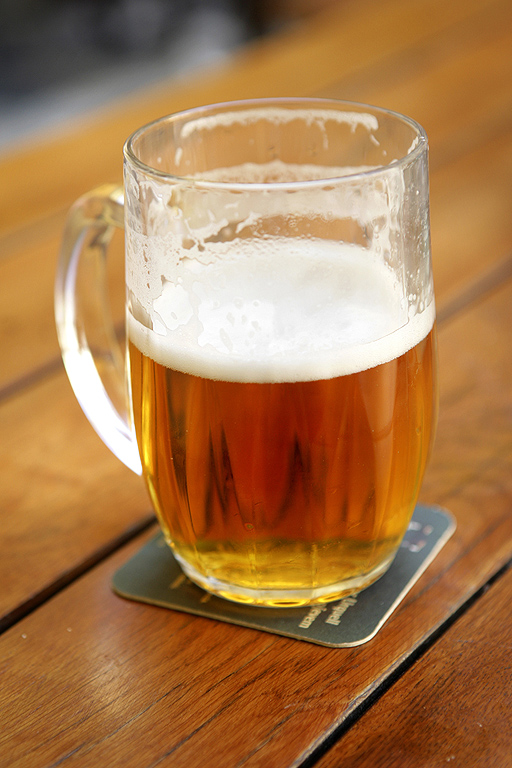Pioneer for cold beer: Vote yes for modern liquor laws

Since the end of Oklahoma prohibition in 1959, local wineries and grocery stores have operated under laws and regulations that have not substantially changed in nearly 60 years. It is well past time to modernize the state’s liquor laws and revitalize Oklahoma wineries and vineyards.
State Question 792, labeled as the “Wine and Beer Amendment,” will be on the November 8 ballot for Oklahoma voters.
Oklahoma voters should vote “yes” on SQ 792.
A “yes” vote on SQ 792 will permit grocery stores to sell full strength wine and beer. Distribution laws will also change under SQ 792, allowing Oklahoma wineries to distribute wine directly to grocery stores and vendors. Local grocery stores and wineries alike will benefit from the passage of 792.
On a national scale, winemaking has grown into a substantial agricultural industry since the repeal of prohibition nationwide. Data from the U.S. Winery Database shows a eight percent growth in national winery openings last year, with 372 U.S. wineries opening in 2015.
The U.S. accounts for eight percent of the world’s wine production and leads in global consumption of wine, with sales reaching over $34 billion annually. Oklahoma wineries and vineyards desperately want to be a part of this national growth.
Oklahoma’s history of winemaking goes back to the early 20th century. The Oklahoma Historical Society estimates that the acreage of grapes planted in 1907 reached numbers between 3,700 and 5,425. Soon after Oklahoma became a state, the introduction of prohibition squandered the Oklahoma wine industry, making it insignificant on a national scale.
With a lack of vendors and heavy regulations, it has taken almost a century for the Oklahoma wine industry to get back on its feet.
In 2000, a vote approved a constitutional amendment that allowed wineries to sell their wine to restaurants and other retailers, without going through a wholesaler. This vote helped increase winery numbers from just three in 2000 to 55 in 2008. However, in March of 2006, three Oklahoma liquor wholesalers filed a suit against the amendment, and the amendment was ruled unconstitutional.
Though the recent changes have helped a small Oklahoma wine industry emerge, the amendment reversal and remaining restrictions still heavily affect local vineyards and wineries.
Susan Boehrer, owner of Redbud Farm and Vineyard in Washington, Okla., commented on the difficulties faced by local vineyard owners.
“This year there were several vineyards that weren’t able to sell their grapes,” Boehrer said. “A winery only wants to buy enough grapes to make the wine they think they can sell. Unless we bring the sales up in Oklahoma, there are going to be grapes that are dying on the vine.”
“We have to build back this industry in Oklahoma. It’s not only a huge agricultural product, but an agritourism product,” Boehrer said.
Agritourism is defined as “any agriculturally based operation or activity that brings visitors to a farm or ranch”.
“People love to go visit vineyards and wineries in Oklahoma. It’s good business for everybody,” Boehrer said. “It gets us more market, and gets us more ability to ship.”
The passage of SQ 792 would benefit both small business owners and winemakers. Local and family owned grocery stores will be allowed to carry Oklahoma made wine, supporting local wineries. If there is more demand for locally sourced wine, there will be less Oklahoma grapes dying on the vine, and in turn a thriving viticultural industry.
“We have a lot of family owned and locally owned grocery stores and convenience stores in the state of Oklahoma,” Boehrer said. “By passing 792, a lot of grocery stores will start to carry Oklahoma made wine. It will put more Oklahoma wine into local markets for people to buy.”
Though winemakers and vineyards support SQ 792, Oklahoma liquor stores are not as enthusiastic. The president of the Retail Liquor Association of Oklahoma, Bryan Kerr, is afraid SQ 792 could lose business for liquor stores and retailers.
Despite concerns, liquor stores will still likely have a wider range of liquor choices than most grocery stores, and SQ 792 will allow liquor retailers to stay open later and longer. SQ 792 will also allow liquor stores to sell items such as ice, corkscrews, and cold beverages in their shops.
SQ 792 would introduce more convenience for shoppers wanting to buy alcohol at grocery stores, while also benefiting the Oklahoma grape and wine industries. It is time to change our antiquated liquor laws.
SQ 792 will not only benefit beer runs for family parties or Fourth of July get togethers, but will help the growth of an important agricultural sector of Oklahoma.
Vote YES on SQ 792.